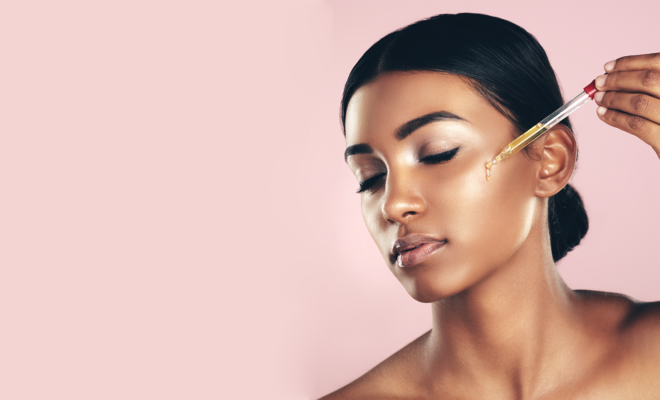8 Dermatologist-Recommended Makeup Tips for Healthy Skin

For most of us, makeup is a part of our everyday lives. From natural touch-ups like mascara and blush, to elaborate additions like eye shadow and lipstick, makeup is a great way to express yourself–or simply feel more like yourself. That said, it’s certainly something to be cautious about. Makeup can have devastating effects on the skin if not used properly. Below are eight dermatologist-recommended makeup tips to keep your skin healthy and strong, no matter the season.
1. Don’t Share Makeup
Sharing makeup can be very harmful to your skin. Sharing acne products, moisturizers, or makeup with friends and family members is not recommended. The ingredients in your cosmetics, including preservatives and fragrances, may not combine well with other makeup products, and could cause acne and skin irritation.
2. Do A Patch Test Before Applying Makeup
Doing a patch test before applying any makeup or cosmetics to the skin is a good idea if you’re unsure about the product’s safety (or if you have sensitive skin). Even if the brand has a reputation for reliability, you never know what ingredients will or won’t work well with your skin. Always do a patch test to avoid full-face breakouts, rashes, or hives.
3. Use Hypoallergenic Makeup When Possible
Makeup can cause serious skin reactions in sensitive skin. The ingredients that make up a makeup product can cause allergic reactions and irritated skin, especially if you have sensitive skin or eczema. Allergic reactions to makeup can happen quickly or gradually, and may appear as anything from a rash to discoloration to permanent skin damage. If your skin is sensitive or if you have a family history of sensitive skin, use hypoallergenic makeup and skin care products whenever you can.
4. Always Use Sunscreen
The sun is the main cause of most skin problems, including redness and wrinkles, so it’s important to use sunscreen every day to protect your skin from the sun’s harmful rays. If you’re not sure what sunscreen is best for your specific skin needs, dermatologists recommend starting with an SPF 20 or higher (or SPF 50 when outdoors).
5. Use Clinically-Tested Makeup Products
Many cosmetics are not tested by the FDA. If you see a black “FDA” on the label, you know that this product was proven to be safe and effective before being sold in the United States. You should always check with your dermatologist for recommendations on makeup products that have been clinically tested for safety and effectiveness.
6. Take Your Makeup Off Every Night
Makeup and sunscreen can severely damage your skin if left on for too long, so it’s important to remove makeup every night as soon as possible (whether or not you take a shower or bath at night). Eyeshadow and lipstick especially can be very damaging to the skin, which is why it’s best to wash your face before hitting the sack. This will allow your skin to regenerate overnight (Yeah–beauty sleep is a real thing!) and cleanse itself so that you look your best each morning.
7. Ask Your Dermatologist for Makeup Recommendations
Dermatologists have a lot of knowledge about makeup and skin care products, so asking one for recommendations for makeup tips and which products you should use can be very helpful. Additionally, many department stores and cosmetic shops employ beauty consultants whose main job is to help customers find the perfect products for their skin.
8. Use Makeup Applicators Instead Of Your Fingers
Using your fingers to apply foundation or blush can be very risky, especially if you have cuts on your hands or if you’re using a cream or liquid product. Unsanitary fingers can cause major breakouts and irritation over time, so using a makeup applicator is crucial to healthy skin around the face area.
Bahr Dermatology provides skin care services in Bountiful, Utah.

